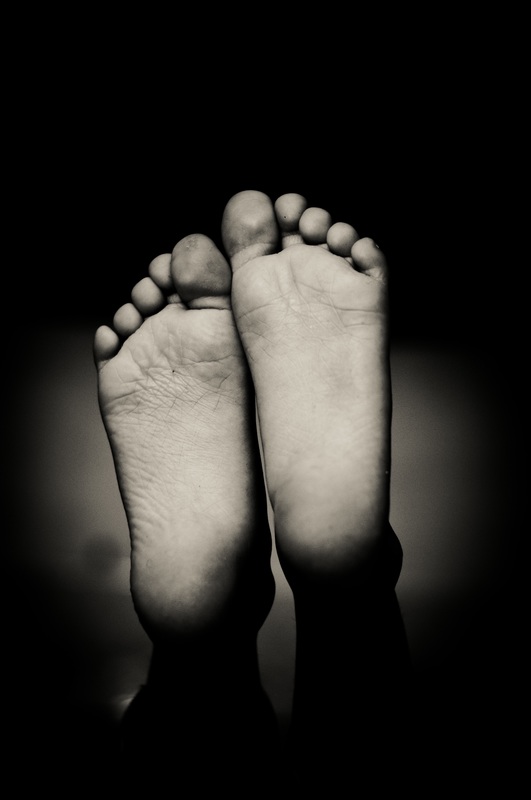What is the Suzuki Method, you ask? SITI Company's training page on their website offers a nice concise description:
Developed by internationally acclaimed director Tadashi Suzuki and the Suzuki Company of Toga, the Suzuki Method’s principal concern is with restoring the wholeness of the human body to the theatrical context and uncovering the actor’s innate expressive abilities. A rigorous physical discipline drawn from such diverse influences as ballet, traditional Japanese and Greek theater, and martial arts, the training seeks to heighten the actor’s emotional and physical power and commitment to each moment on the stage. Attention is on the lower body and a vocabulary of footwork, sharpening the actor’s breath control and concentration.
The whole class was physically challenging but supportive, and I feel like I really learned so much about what my body can do. Not to mention how often I ignore most of it, most of the time. Offstage: at my day job, where I slouch over a keyboard typing away for hours; crammed onto a subway train during rush hour; walking up the stairs to my apartment. Onstage, too. Crossing stage left to right, aware that I'm using both my feet but not feeling completely rooted; asking a question of my scene partner and unsure what to do with my hands; too many times that I've leaned towards acting with my face and not the rest of me.
The class taught us to isolate our feet, hands, legs, fingers, and invited me to give such specific attention to each one of those parts that I walked away feeling kind of amazed about the human body. I mean, look at your hand. Open and close it. Wiggle your fingers. Make a fist. Use your hand to try to get an imaginary person in front of you to pay attention to an urgent issue you are having. Use your hand to indicate to someone that all is calm and there is nothing to fear. The range of motion! The dexterity! Is there anything more incredible than that? Seriously? Honestly, it's absolutely stunning to have a human body, with all it is capable of doing, and I want to really explore the range of what I can do with mine instead of getting stuck in the same old habits and routines.
Before you think I may have gone off the deep end here, stay with me. Besides the physical benefits of the training (of which I'm sure my muscles will notice fully tomorrow!), I walked away with a few amazing ideas to think about as an actor and a human. Here's a few of my favorites that I am totally stealing from our brilliant instructor:
1. It's impossible NOT to wobble, wiggle, sweat, swear, or doubt when doing some of the exercises. And that's how it should be onstage, too. Don't hide it. Suzuki didn't name some of his exercises "the impossible tasks" for nothing, and essentially, people go to the theatre to see this struggle. If it were easy from the start, we wouldn't have a play (or a life).
2. As an actor standing still onstage or in silence, your engines need to be churning all the time. This way, you aren't just someone standing still, you are potential energy that has the ability to take off and fly any time you need to. Keep those engines strong and your energy full. A moment of stillness does not equal complacency.
3. If you lose your coordination and center, try shifting your focus from your self to someone or something outside you. Get interested in what your scene partner is saying or doing or what is happening on the horizon. It will give you a way to reengage your energy and attention.
4. Concentration is different than paying attention. Concentration feels militant, restrictive, and deadening. But paying attention? The whole world opens up to your senses when you pay attention.
5. Finally, my favorite from the day: You can be creative. You can be curious. But you can only do one of them at a time, and if you have a choice, choose to be curious.
So good, right? I got a chance to participate in and observe an exercise in which we had to visualize an image on the distant horizon and walk slowly downstage towards it. If I'n honest, when I started walking, no image came to mind and I started to panic. Without even thinking about it, I started to imagine that I could see something, but it was too far away to know what it was, so I had to keep walking and trying to figure it out. I had to be curious about it. When I switched places and got the chance to observe, my favorite people to watch were those whose responses to the image evolved over the course of their walking. It's almost as if they became more and more curious and full of wonder the closer they got to the image and it was palpably dynamic. Pretty cool.
I'm tired in the best way; I feel like I spent the day paying an unusual amount of attention and trying something completely new. I wonder how this might affect my next role or even the way I carry my groceries home from the store? One of my favorite things about acting is that there are always more layers to keep peeling back, and each time you do, you get a different slice of yourself and the world. I suppose it's like that being a human being as well. How could one ever be bored?
If you get a chance, check out a video of some Suzuki training. It's fascinating!

